Questioni have a 55 gallon brackish water aquarium, specific gravity of 1.005 (last i checked that was a few days ago but it should be a tad higher now, maybe 1.006), and an aquaclear filter listed for a 70 gallon aquarium. alot of algea has accumulated in my tank in the past 2 days because i have a new lighting system and have not had a chance to get a diatom filter (but green algea isn't bad for the fish, just looks bad... right?). i have a snowflake eel (Gymnothorax polyuranodon) that i've had for a few months and hes been doing great till now, i came home and he was swimming around at the top of the tank which is very strange, and it looked like he was gasping for air (almost as if hes swallowed a rock, but i don't think he has). also, i put him in the tank when it was still freshwater and have been very slowly putting salt in. so could this be a reaction to the salt even though hes a brackish fish? is he sick? help me! i really like this eel and don't want him to die!
AnswerHi Lyle,
That is a tough question for me because I have never kept a snowflake eel and don't know much about them. However, I can tell you this: eels change their salinity preferences as they mature. Certain eels start out in marine waters, then move into freshwaters to grow, then migrate back to the ocean to spawn. We call these fish "catadromous" and it is the opposite of anadromous fish like Pacific salmon, which start in freshwater, migrate to the ocean to grow, and then migrate back to freshwater to spawn. (There are other eels, e.g., moray eels which stay in the ocean full time). There are no true eels which exist for their whole life in freshwater as far as I know. The bottom line is that while many people say the snowflake eel is "brackish" that isn't really correct, in that they are only "brackish" for part of their life. You will need to find out more details elsewhere about exactly when the transition period is for that particular species. I hope this at least helps you understand the situation a bit. Sorry I couldn't provide more details.
-- Ron
rcoleman@cichlidresearch.com
Cichlid Research Home Page <http://cichlidresearch.com>

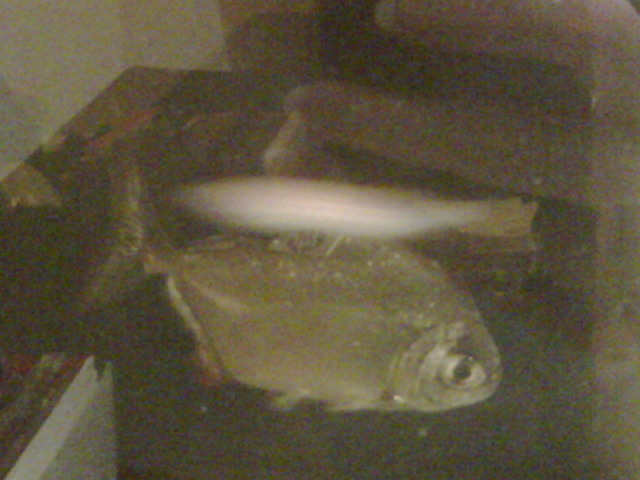 Ick?
QuestionQUESTION: Hi. I have one Silver Dollar fi
Ick?
QuestionQUESTION: Hi. I have one Silver Dollar fi
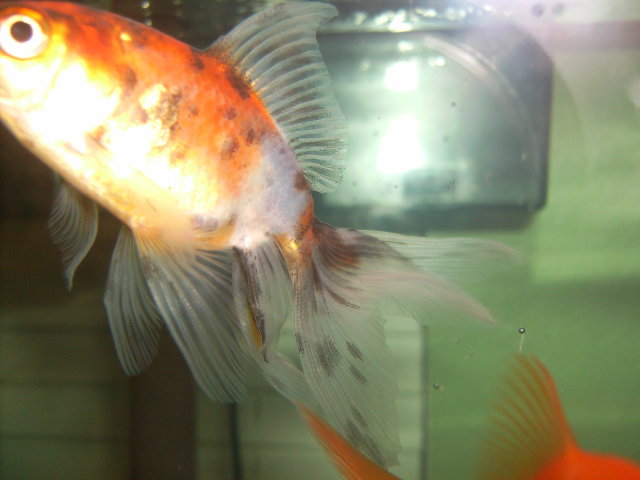 My fantail goldfish might have fungus
Questionthe sick fantail
QUESTION: Hello Jaymie,
My fantail goldfish might have fungus
Questionthe sick fantail
QUESTION: Hello Jaymie,
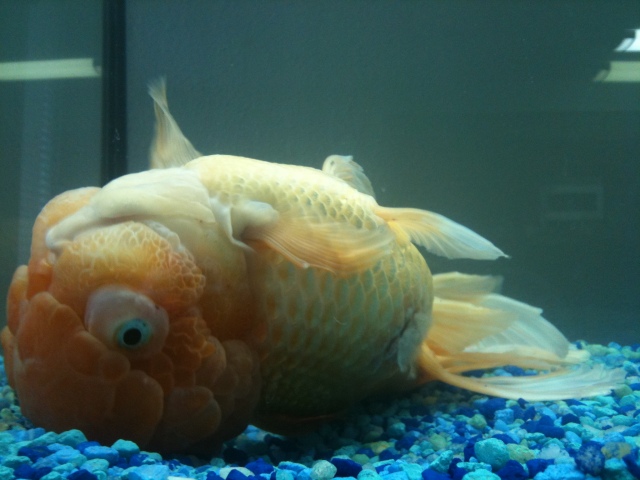 Swim bladder disorder in Lionhead Oranda
Question
Fuzzy spot
Hello! I have been doing res
Swim bladder disorder in Lionhead Oranda
Question
Fuzzy spot
Hello! I have been doing res
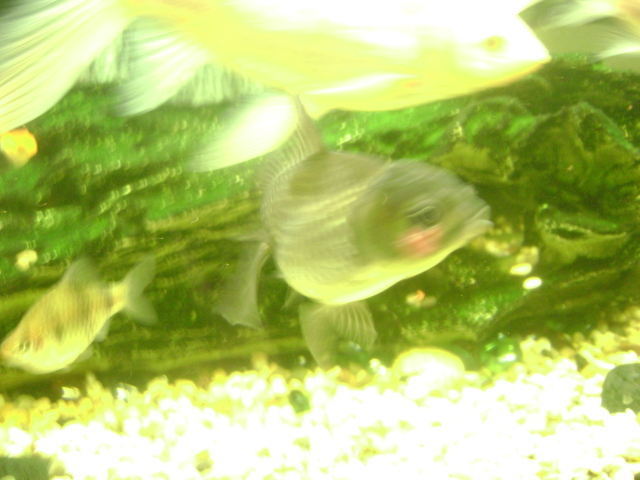 open wound below eye,no white fungus
Questionblue orando
QUESTION: heya,i have an ora
open wound below eye,no white fungus
Questionblue orando
QUESTION: heya,i have an ora
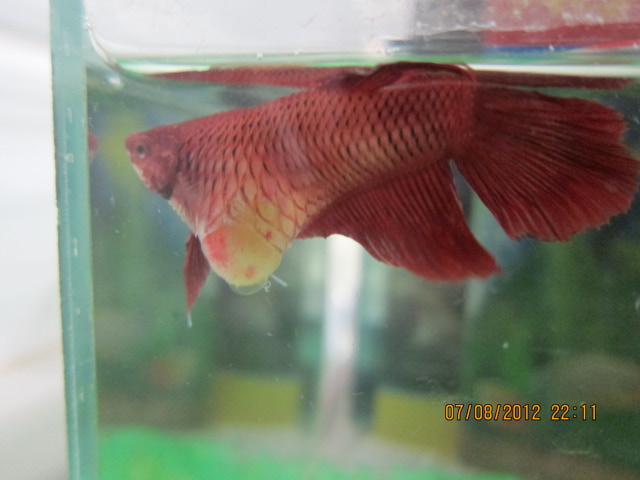 Bloated Belly
Question
My Beta fish Bloated Belly
Hello
Bloated Belly
Question
My Beta fish Bloated Belly
Hello